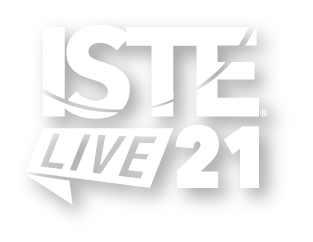

Students as Digital Agents in Their Own Learning |
Listen and learn : Lecture
Cheryl Lemke
In this era of remote learning, students need to be more independent and self-directed. Join this session for tips and techniques to ensure your students are more attentive and focused, as they independently manage and take responsibility for their own learning — digital agents in their own learning.
| Audience: | Coaches, Professional developers, Teachers |
| Skill level: | Beginner |
| Attendee devices: | Devices required |
| Attendee device specification: | Smartphone: Android, iOS, Windows Laptop: Chromebook, Mac, PC Tablet: Android, iOS, Windows |
| Participant accounts, software and other materials: | None. All are accessible without apps. |
| Topic: | Student agency, choice & voice |
| Grade level: | 6-12 |
| ISTE Standards: | For Educators: Facilitator
Empowered Learner
|
With the advent of remote learning, students cannot succeed in learning unless they are active agents in their own learning. Self-directed learners take charge of their learning before they begin the studies, manage and adjust during the study, and then actively take ownership of results after learning. Educators will learn what agency and self-directed learning are, why they are critical to today's remote learners, and how a suite of digital tools can be employed to build and support the development of students' skills. Those tools include digital calendaring, reminders, collaborative tools, evaluative tools, visualization tools, spreadsheets, as well as goal setting, metrics, and digital tools for tracking and monitoring successes.
5 Minutes - Introduction through student story
5 minutes - self assessment by audience as to how self-directed they are
20 minutes - elements of student agency and self-direction will be presented and demonstrated, with 3 polls of audience introducing each segment
12 minutes - Audience will interact with student profiles and share ideas for how a teacher might react in ways that facilitate student agency, build self-direction in students, and create space for students to enact in self-direction
8 minutes Q&A
Dabbagh, N., Bass, R., Bishop, M., Costelloe, S., Cummings, K., Freeman, B., Frye, M., Picciano, A. G., Porowski, A., Sparrow, J., & Wilson, S. J. (2019). Using technology to support postsecondary student learning: A practice guide for college and university administrators, advisors, and faculty. Washington, DC: Institute of Education Sciences, What Works Clearinghouse. (WWC 20090001) Washington, DC: National Center for Education Evaluation and Regional Assistance (NCEE), Institute of Education Sciences, U.S. Department of Education. https://whatworks.ed.gov.
Broadbent, J. (2017). Comparing online and blended learner’s self-regulated learning strategies and academic performance. The Internet and Higher Education, 33, 24–32.
Fredricks, J. A., Blumenfeld, P. C., & Paris, A. H. (2004). School engagement: Potential of the concept, state of the evidence. Review of Educational Research, 74(1), 59–109.
Lee, K., Tsai, P. S., Chai, C. S., & Koh, J. H. L. (2014). Students’ perceptions of self-directed learning and collaborative learning with and without technology. Journal of Computer Assisted Learning, 30(5), 425–437.
Schunk, Dale and Zimmerman, Barry, ed.; Self-regulated Learning: From Teaching Practice to Self-Reflective Practice; Guilford Press; NY; 1998.
Zimmerman, B. J. (2000). Attaining self-regulation: A social-cognitive perspective. In M. Boekaerts, P. R. Pintrich, & M. Zeidner (Eds.), Handbook of self-regulation, (pp. 13–39). San Diego: Academic.

Cheryl Lemke leads the Metiri Group, a consulting firm that specializes in research, program evaluation, professional development, and systems thinking in digital learning and 21st Century skills. Lemke is considered a thought leader in the U.S. and internationally. Her firm partners with ISTE to offer virtual PD to introduce teachers to 3 ISTE student standards and currently works with and evaluates large digital learning projects in New Jersey, Utah, and CA. She brings over 25 years of experience in the public sector—as a teacher, state technology director, policy expert, director at a foundation, and associate superintendent for Illinois SBE.